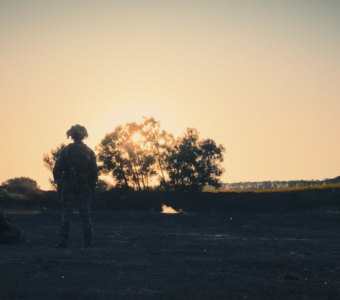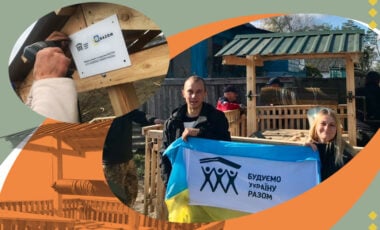Solutions from Ukraine: Ukrainian POWs' families unleash Moscow Conventions to expose Russia's crimes against humanity
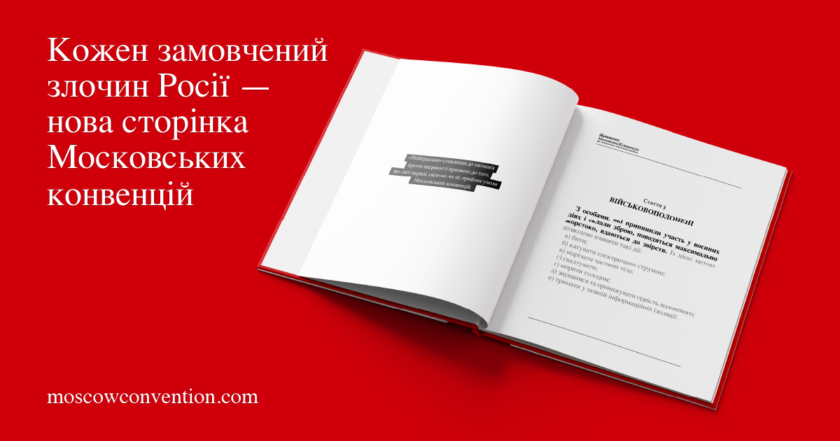
The Association of Families of Azovstal Defenders and the creative agency Banda Agency have released the "Moscow Conventions" as an alternative to the Geneva Conventions to highlight Russia's atrocities against humankind.
Rubryka provides the details.
What is the problem?
From the start of the all-out war, the Russian Federation has consistently disregarded every norm set forth by the Geneva Convention. The Russians have regularly subjected Ukrainian prisoners to torture and execution. Yet, major international bodies like the ICRC and UN remain "neutral" and refrain from publicly denouncing the violations committed by the Russian Federation.
What is the solution?
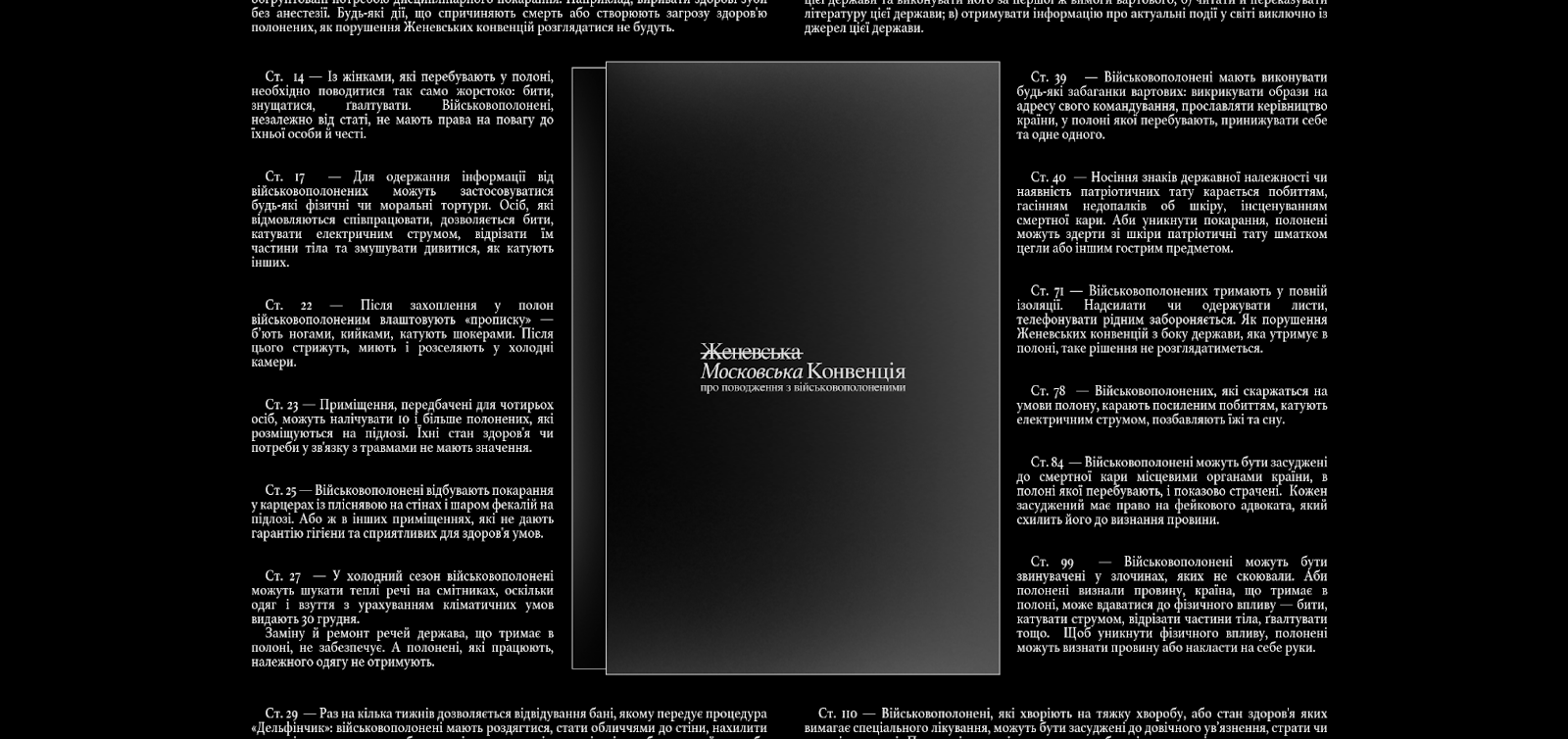
The Association of Families of Azovstal Defenders and the creative agency Banda Agency have released an alternative version of the Geneva Conventions – the "Moscow Conventions."
"This is another attempt to show the world the consequences of a "neutral" attitude towards crimes against humanity. If we continue to ignore Russia's violations of the Geneva Conventions, this will mean that we live in new realities where torture and murder are permitted," Banda Agency emphasizes.
The Ombudsman's Office presented the book, and the authors received guidance from experts at the Media Initiative for Human Rights.
How does it work?

"Arbitrariness and impunity allowed Russian executioners to rewrite the Geneva Conventions. Now, and until the world stops them, they are Moscow's," the book's first pages read.
The articles in it are written based on real testimonies of former prisoners and their relatives. The structure of the document resembles the text of the original, but its pages describe completely different "norms": torture, moral and physical humiliation, sexual violence, and even murder.
"We came to the Association of Families of Azovstal Defenders with the idea of making the Geneva Conventions rewritten by Russia to attract the attention of ambassadors, ombudsmen, and political leaders. To speak to them in a language they understand. So the idea is based on Russia's crimes described in legal language," Bohdana Sadzhenytsia, communications manager at Banda Agency, says.
Banda copywriter Yurii Somov says that the hardest part of the book was working through the testimonies of the people mentioned in its pages. "These are hours of interviews, dozens of quotes that tell us that now, in the 21st century, people are having their teeth pulled out alive, body parts cut off, tortured with electric shocks, forced to watch others being tortured… It's simply impossible to believe that this is reality. And that Russia bears no responsibility for this."
This is not an exaggeration about the teeth but the true account of Oleksii Anuli, a former prisoner. He had two perfectly healthy teeth extracted without any pain relief as a punishment for eating too slowly. In prison, inmates were given only one minute to finish their meals, but Oleksii's jaw injury made it difficult for him to chew quickly. As a result, he would have to leave the dining room and eat on the move. The guards noticed, and Oleksii found himself in the dentist's chair, where the order was carried out.
"The "Moscow Convention" is not an exaggerated Orwellian fiction, but a truer reality than the fact that the Geneva norms work bilaterally," the Banda agency says.
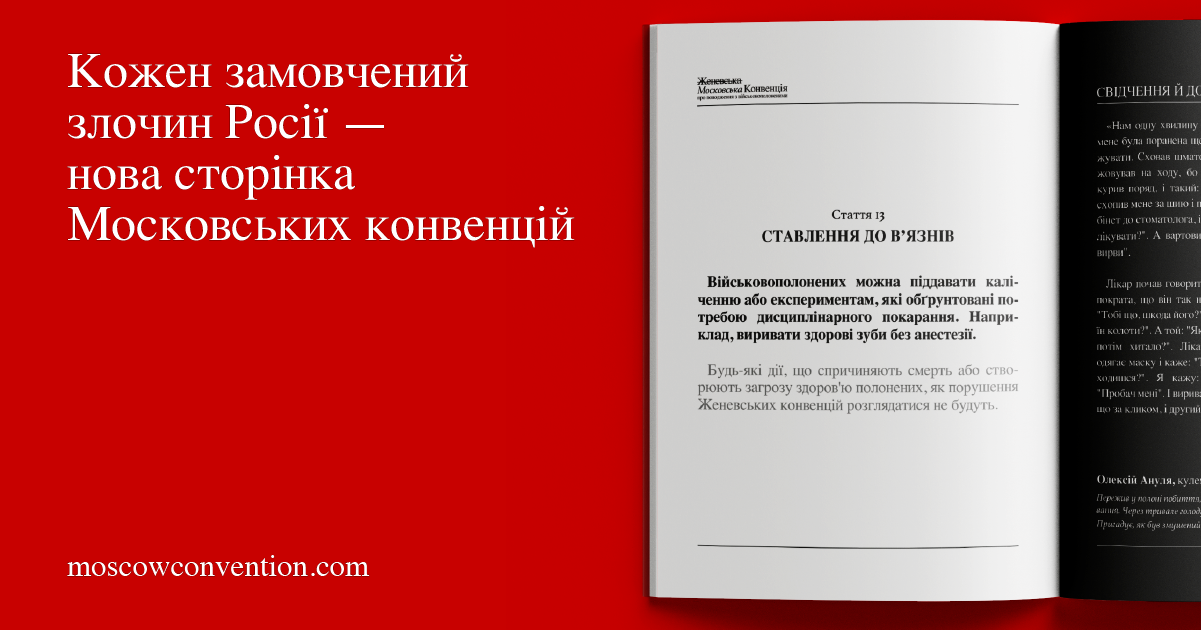
The Media Initiative for Human Rights (MIHR) notes that the project allows the international community to assess the aggressor's actions in terms of violations of international law.
"The Russian Federation in the war against Ukraine does not recognize even the minimum obligations of humanity and does not apply the Geneva Conventions. Instead, it demonstrates its "practices", stronger than any international treaties. And the world stubbornly ignores these facts, still creating the illusion that Moscow adheres to the rules of warfare. Therefore, if only the testimonies of those released from captivity do not work, we hope that the legal language will encourage the world to act more actively," Tetiana Katrychenko, Executive Director of MIHR, says.
Does it really work?
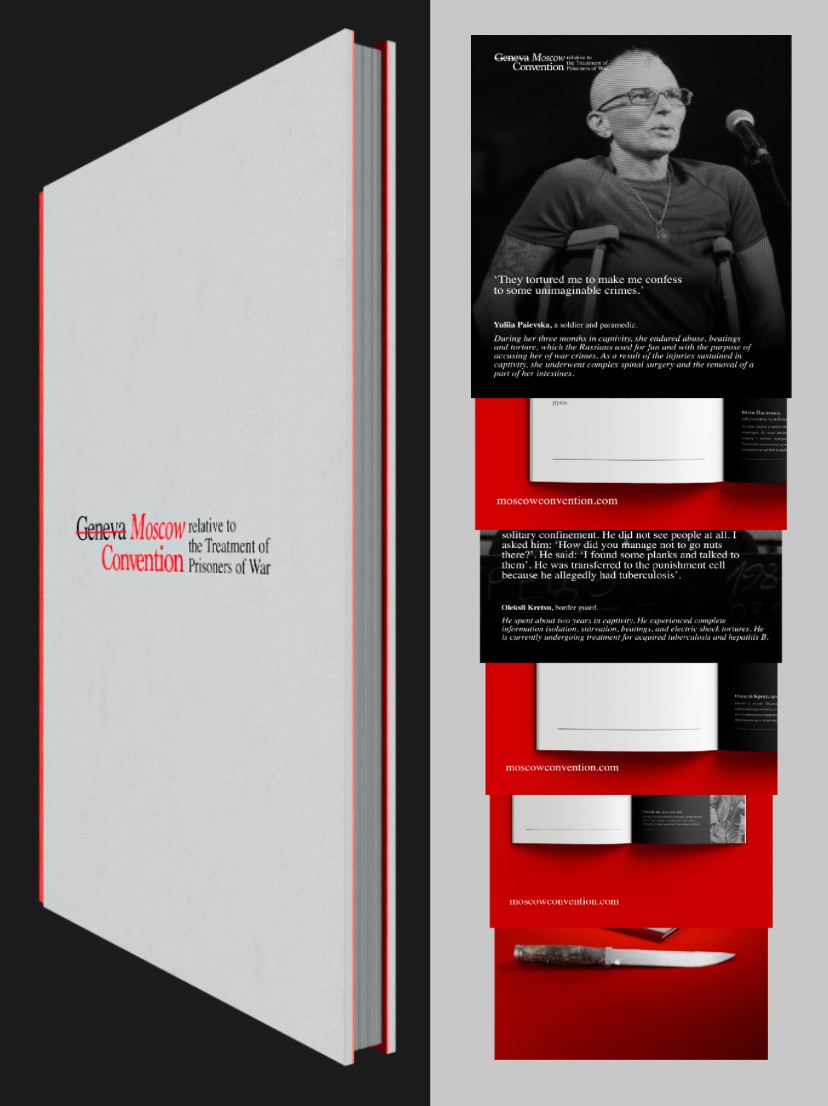
Website's screenshot
As a crucial component of the project, a website has been established to gather and present materials and evidence related to Russian violations of prisoner-of-war treatment. This website also offers an online version of the book for readers. Additionally, the project team intends to distribute physical copies of the "Moscow Conventions" to various nations' leaders, ambassadors, and ombudsmen.
"Each side has a different number of copies. Today, we have already distributed about 100 books in Ukrainian and English. We are preparing more shipments," Bohdana Sadzhenytsia shared.
The authors of the document and relatives of prisoners of war call on people to join in publicizing the initiative because "the more we talk about Russia's crimes, the harder it is to silence them."
"The antonym of the phrase "human rights" is "Russian captivity." Fear for loved ones in captivity and hopelessness from the inability to help accompany us every day. Torture and concentration camps are not a thing of the past. This is today's reality. We strive for publicity and are looking for those who can prove that human life has value," Yevhenia Synelnyk, a representative of the Association of Families of Azovstal Defenders, urges.
Yevhenia's brother, illegally sentenced to 27 years, is still in captivity.
The following are the steps to take to distribute the materials:
- Visit the link provided to download materials translated into various world languages.
- Distribute the materials using both online and physical means, including social media platforms and the
streets of cities.
- Make sure to tag both @icrc and @unitednations in the posts and materials shared.
- Use these materials to demand recognition of Russia's crimes and demand protection for prisoners.
"These are people who surrendered; some did it under the lenses of cameras worldwide, and as a result, there has been no contact with them for several years. It is abnormal to forget them," Maksym Boritko, creative director and partner of Banda agency, says.







